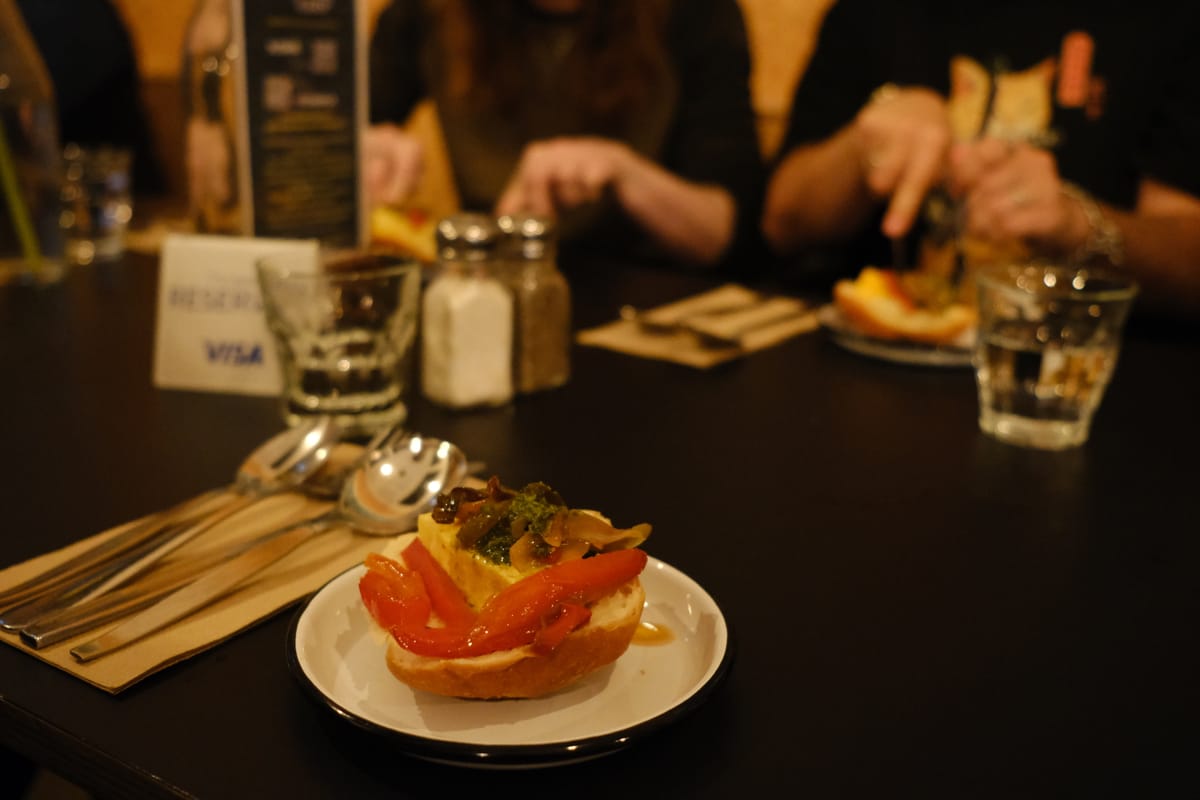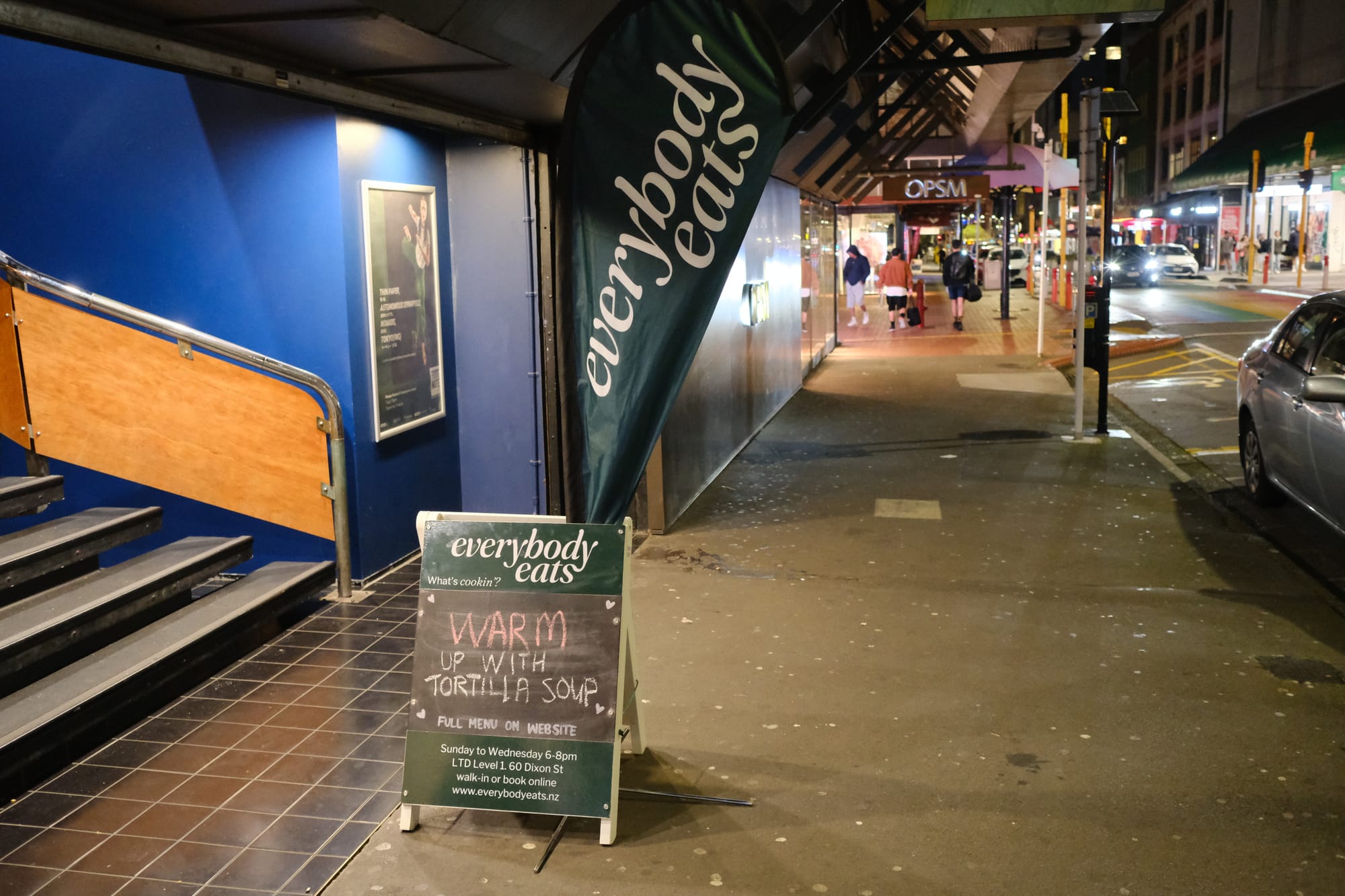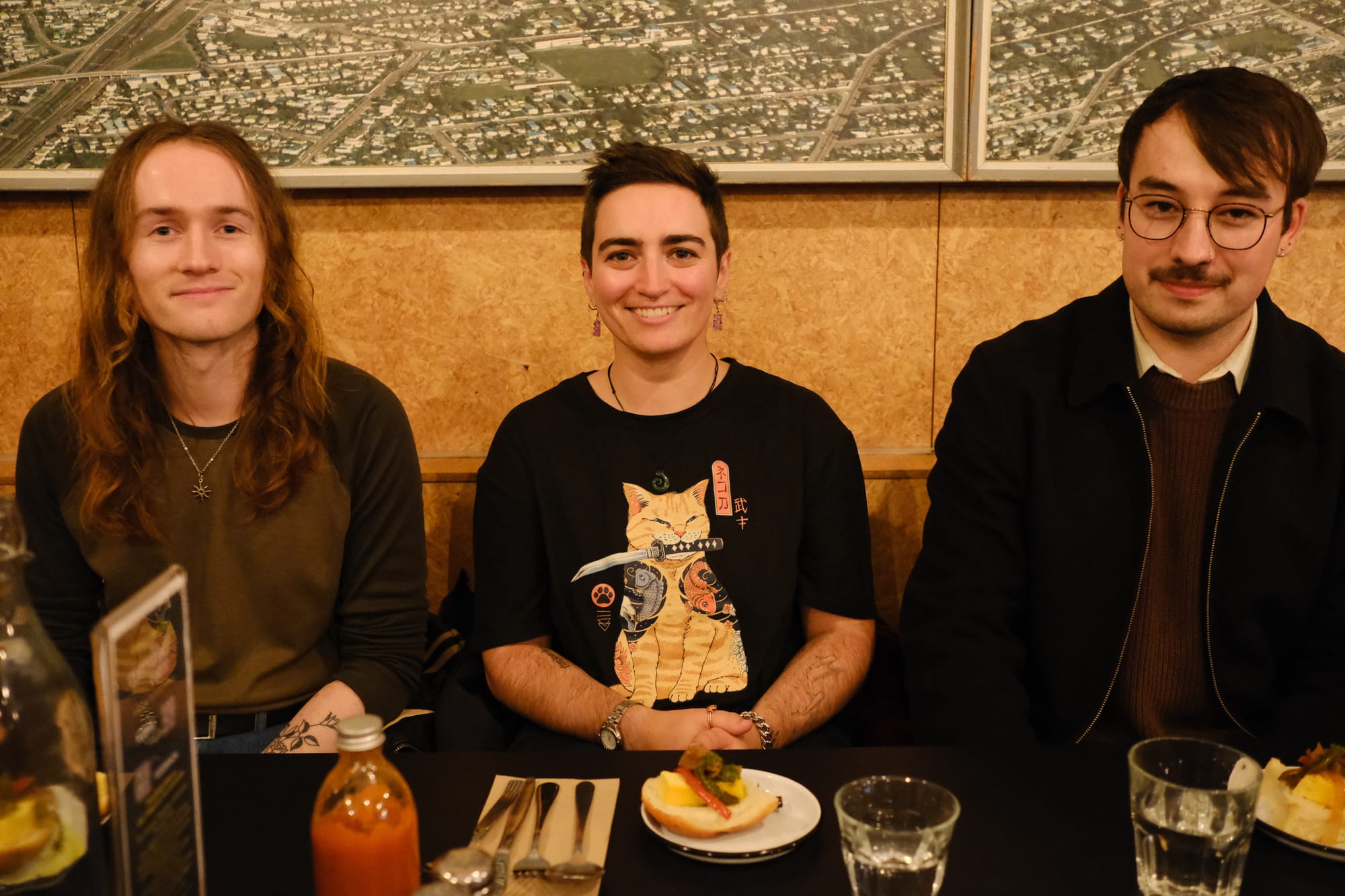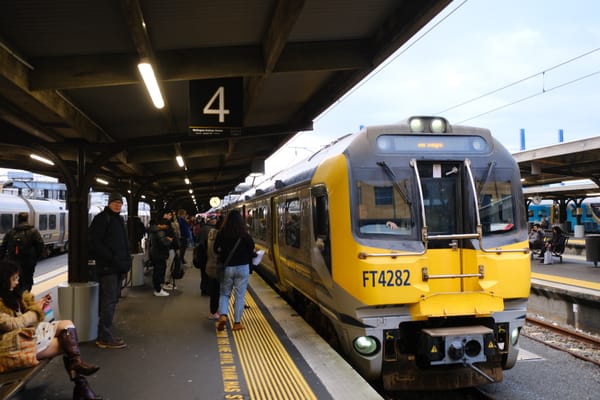Everybody Eats is a masterclass in compassionate climate action
Everybody Eats rescues food destined for landfill and serves it to anyone who walks through the door. You pay what you can. It’s Wellington’s quietly radical answer to hunger and climate change.

Last Tuesday night, my loved ones and I braced the frigid July air to dine out on Dixon Street.
Our restaurant was packed with people. It’s a popular establishment: hundreds of people go there each night for its three course meals. Dinner was delicious and unorthodox. The place felt warm, physically and metaphorically. Perfect for enjoying with company.
This restaurant is called Everybody Eats, and it adds two beautiful twists to the typical dining experience.
Each and every meal is made from food that would otherwise be sent to landfill, and everyone who walks through the doors gets a meal. There’s no set price: you pay what you can.
Everybody Eats is a social enterprise that Wellington should take pride in. It’s quietly radical. Instead of finding solutions to our pollution without regard for anything else, it uses rescued food to uphold the mana of everyone in our community, especially the most vulnerable.

How Everybody Eats works
Jack Rainey, Everybody Eats’ Restaurant Manager, has always had a personal connection to food. Growing up on a farm, he has an intimate knowledge of how much effort goes into a meal. It’s given him a deep conviction to stop food from going to waste.
Everybody Eats works in a simple, but radical, way. Food rescues and supermarkets deliver tonnes of food to their kitchen each year. Their chef Alicia and volunteers prepare food for dinner service and create hundreds of eat in and takeaway meals every Sunday to Wednesday.
Flexibility is the name of the game when you’re working with rescued food. “Alicia calls it lateral cooking,” Jack explained. “You process an ingredient into its really basic form. Tomatoes are a good example… you make a big, basic tomato puree out of it and incorporate that into a dish.”
Creating base ingredients from rescued food makes it goes further. The first night’s tomato puree could be used as a base for lasagne on Sunday, then as a soup on Tuesday like we had. Instead of being prescriptive and creating huge amounts of one dish, the meals are assembled from component parts as needed. Nothing goes to waste.
Based on our meals, this cooking is resourceful and scrumptious. I particularly loved the taste of the banana cocoa chia pudding. It was so creamy, I could’ve wolfed down five servings.
Jack admires the variety that comes from the kitchen. "I'm always blown away by the talent and the quality of the food that comes out... it's a pretty incredible feat."
Because food is rescued, there’s no telling what will be available week to week. Everything is based on what’s “seasonal, available, and abundant.” The menu changes day by day, with just one veggie and one meaty option.
Being so used to menus at other restaurants, we were uncertain. What I found was I really enjoyed not having to face decision paralysis about what to eat and whether I could afford it. My meal was determined by the environment, not the other way around. It was freeing.

Paying what you can
Our server Lana explained to us that at Everybody Eats, you pay what you can. Each meal costs about $10 to make. If you can pay, fantastic. It does not matter whether you pay a little or a lot. Paying what is reasonable to you is what matters.
Hanni and I paid $40 each. We’re financially secure, so we can afford a good meal out every once in a while. Paying a nice meal price means we covered the cost of our meals and six others. Well worth it.
Jack told me that about a third of diners don’t pay anything. Another third pay pocket change – whether it’s three cents or a few dollars. The last third pay more than the cost of the meal: “$20 or more.”
This simple and dignified model is quietly radical. We didn’t have a different experience because we paid. It would’ve been impossible for us to distinguish who was paying and how much. We paid by QR code at our table. How much anyone contributes just doesn’t matter.
"It means that this person over here can put $40 on the EFTPOS machine and the person sitting next to them might be living in Kāinga Ora accommodation. They can still go and have a really dignified experience, share the same food, have a nice conversation. For that brief moment in time they're completely equal. Just two people enjoying dinner together."
Mana is not something you should have to buy. It should be upheld for each and every single one of us, regardless of wealth. Everybody Eats asserts that mana for everything they touch: the food they rescue and the people they feed.
The community upholds the mana of the space, as well. You can tell. Looking around during our meal we saw a lot of people sharing space, chatting to one another, having a peaceful and relaxing meal.
Though the restaurant works well for the community, the finances are tricky. Everybody Eats only recovers half of its costs from paying diners. The other half comes from catering and events.
Organisations can host events at the restaurant on Thursdays. The team also provides catering for businesses and government, including the City Council. Instead of offering a fixed menu, they work with what’s seasonal and recently rescued. I’ve had their catering before and it’s bloody good.
They’re making it work – but it is a challenge. If more people come in who can pay, it means there’s more pūtea (money) to feed those who can’t. Dining at Everybody Eats means you’re making sure more people have food regardless of their wealth.
From January alone, the Dixon Street restaurant served nearly 12,000 meals. Imagine what could be possible with more community support across incomes to share meals together.
Putting compassion first
Challenges that affect our whole community are scary. Climate change is no exception. But every challenge also comes an opportunity to reflect and change.
It takes energy to make our food – people’s work, raising and slaughtering animals, countless crops being grown and processed. Creating all this food is warming the world – yet on average a Kiwi household is throwing out 86kg of food each year. It’s good food that could feed someone hungry.
Society treats food as a worthless commodity, something that animals and farmers can spend their lives putting effort into only for it to end up further polluting the planet from a landfill.
The world has a giant challenge: take pollution out of making our meals, or face a warmer and more volatile planet. Lots must change: seeing meat as more of a treat and transforming how we farm for example.
Achieving that change can be done in many ways. We could leave just as many people hungry, just as many communities divided by wealth. Each of us can retreat into fiefdoms, fearing one another.
Or, we could see climate change as an opportunity to bring about a more compassionate country where food is a taonga. We could have a system where no food is wasted and no Kiwi goes hungry.
It is our choice how we change in response to a changing world. Everybody Eats is an example of how Wellington can respond compassionately to our pollution problem: using solutions that improves people’s lives.
My friends and I share that vision for a more compassionate Wellington, so we’ll be back at Everybody Eats some time soon. Maybe we’ll see you there.





